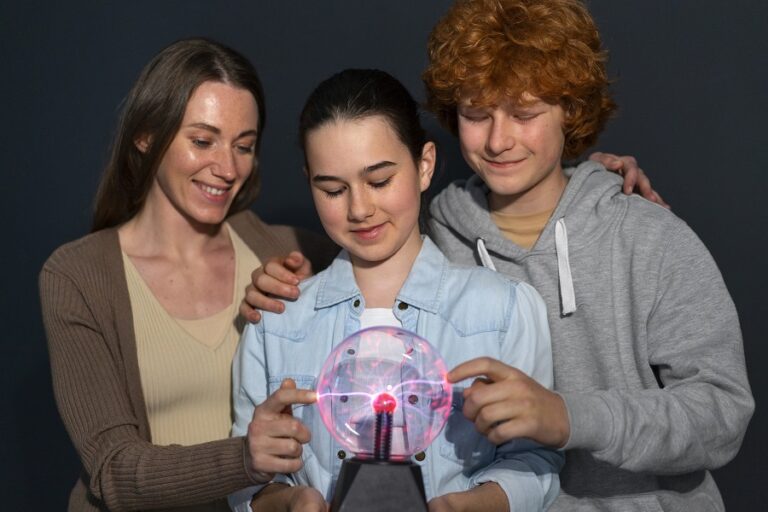Best Brain-Training Games for Students
In today’s fast-paced academic world, students often face distractions that reduce focus and memory retention. Brain-training games offer an engaging and fun way to sharpen mental abilities while improving academic performance. These games are not just fun activities but powerful tools designed to enhance cognitive functions like memory, attention span, reasoning, and problem-solving skills.
With advancements in technology and gamified learning, brain-training apps and games are now accessible on almost every device. This article explores the best brain-training games for students in 2025 and how these tools can contribute to smarter, more effective learning.
Why Brain-Training Games Matter for Students
Students need more than textbooks and lectures to retain what they learn. Interactive tools like brain-training games provide mental workouts that help students stay sharp and focused. Studies suggest that these games can improve processing speed, working memory, and concentration—skills that are directly tied to better performance in school.
Gamified learning motivates students to keep playing, meaning they’re more likely to stick with brain-training activities over time. The best part is these games are often portable and flexible, fitting easily into any student’s daily schedule.
1. Lumosity
Lumosity is one of the most recognized names in the brain-training industry. Designed by neuroscientists, the app offers personalized daily workouts that target cognitive abilities including attention, memory, flexibility, and speed of processing. The simple interface and fun challenges make it ideal for middle and high school students.
2. Peak
Peak offers over 40 games designed to challenge mental agility, emotional control, and language skills. Students can track their progress, set goals, and compare performance over time. The “Coach” feature provides tailored recommendations, making it perfect for students aiming to improve specific academic skills.
3. Elevate
Elevate focuses more on communication and analytical thinking. It includes training modules on reading comprehension, writing, listening, and math. The clean, distraction-free interface appeals to older students who want to build skills while also preparing for exams and assignments.
4. Cognifit
Cognifit is a scientifically validated platform offering mental fitness games tailored for students. It features activities that develop executive functions, spatial perception, and auditory short-term memory. The app is especially useful for students with learning differences like ADHD or dyslexia, offering personalized solutions for cognitive growth.
5. Brainwell
Brainwell includes a wide range of mini-games that focus on mental speed, logic, memory, and reasoning. It’s great for younger students as it includes simple and colorful animations that make the games feel less like study tools and more like entertainment.
6. Math Workout
For students who struggle with numbers, Math Workout makes math fun and fast-paced. The app presents arithmetic and logic puzzles that challenge the brain and reinforce mental math skills. It’s a perfect brain workout for students preparing for competitive tests or school exams.
7. Memorado
Memorado provides a balanced selection of games targeting both IQ and EQ (emotional intelligence). It includes relaxation techniques, stress management tools, and cognitive games that enhance mindfulness—a useful combination for students dealing with exam stress or school anxiety.
8. Sudoku and Puzzle Apps
Classic brain games like Sudoku remain timeless tools for cognitive enhancement. Many mobile apps offer Sudoku challenges at various levels. These puzzles develop critical thinking, pattern recognition, and logical reasoning—skills essential for math and science subjects.
9. Flying Chess
Flying Chess brings a traditional board game to life with a fun twist. While it may not seem like a brain-training game at first glance, Flying Chess encourages strategic thinking, planning, and quick decision-making—key elements in cognitive development. It’s also a social game, allowing students to engage with peers in a playful, educational setting.
10. NeuroNation
NeuroNation uses a structured approach to improve working memory and logical thinking. With over 60 personalized exercises, the app helps students of all ages target weak points in cognitive processing. It’s particularly helpful for students preparing for exams or those needing a structured daily training schedule.
How to Incorporate Brain Games Into Daily Study Routines
To make the most of brain-training games, students should aim for consistency. Playing for 10–15 minutes daily is often enough to see noticeable improvement in focus and memory. These games can be used as warm-up tools before study sessions or as quick breaks between subjects.
Using brain games together with traditional study methods can offer a more balanced and effective learning experience. Parents and educators can also get involved by encouraging friendly competitions or assigning certain games as homework.
Final Thoughts
The best brain-training games for students go beyond entertainment—they become essential tools for boosting academic skills. From sharpening mental math with Math Workout to improving reasoning through Lumosity and strategic thinking with Flying Chess, these games provide diverse ways to strengthen the brain.
As students face increasing demands in school and beyond, brain-training games offer a smart, fun, and accessible way to stay mentally fit. Whether you’re a student looking to improve focus or a parent trying to help your child study more effectively, incorporating these brain-boosting games into your routine could be the key to smarter success.


